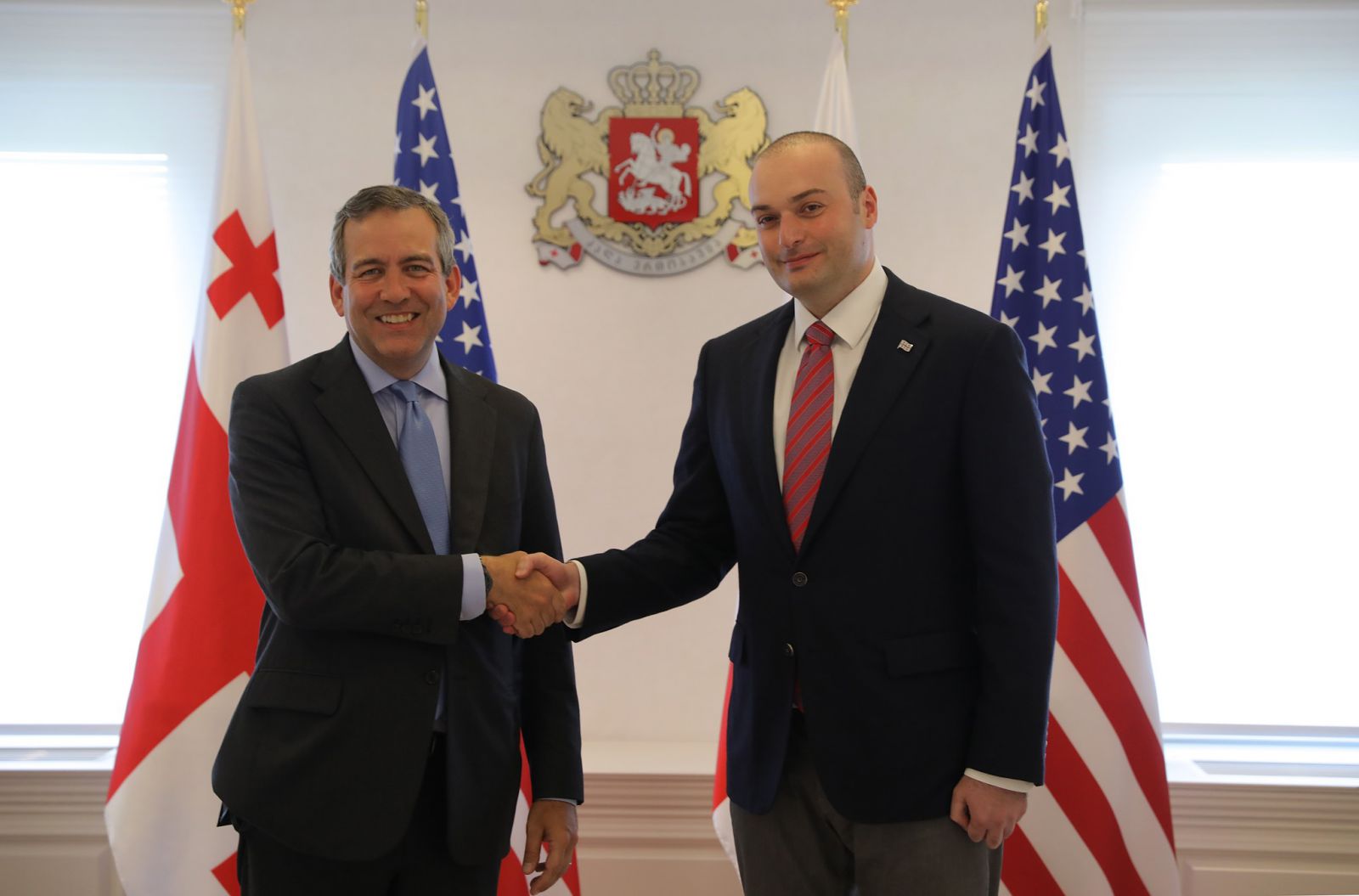August 15, 2018

TBILISI – Executive Vice President of the U.S. Government’s Overseas Private Investment Corporation (OPIC) David Bohigian and other U.S. Government officials met today with Georgian Prime Minister Mamuka Bakhtadze. The purpose of the visit is to promote U.S. investment in the region, strengthen partnerships, and find opportunities to deepen business ties that drive economic growth and stability.
“OPIC investments in Georgia have increased opportunity and prosperity for the Georgian people through projects that emphasize the importance of transparency, sustainability, quality, and respect for the local community and environment,” said Bohigian. “Georgia represents both a past example of what can happen when good governance opens the door for private investment and the potential for future investment. We look forward to working with the government of Georgia as it continues along the path of reform and creates the conditions for future U.S. investments that will benefit the economies and people of both our nations.”
OPIC currently has $138 million invested in Georgia across 21 projects, covering a range of sectors, including tourism, agriculture, and financial services. Historically, OPIC has invested $618 million in Georgia and almost $1 billion in the Caucasus.
To promote U.S. interest in infrastructure development, the delegation met with the business leaders for port projects in Anakali and Poti, both of which are being considered for OPIC financing. The Anakali port will serve large cargo vessels and help reduce transshipping costs to and from Central Asia. The Poti port will service regional vessels transporting grain, dry bulk, and general cargo to the southern Caucasus.
The U.S. officials also participated in a ground-breaking ceremony at the woman-owned Pesvebi School, which is being renovated with funding from the Gazelle Fund, a U.S. fund manager supported with $21 million in OPIC financing. The delegation also with U.S. business leaders at the AMCHAM to discuss investment opportunities in Georgia. OPIC has helped finance many other projects such as Georgian American University, the Marriott Hotel Tbilisi, and the American Hospital Tbilisi.
“Georgia’s most valuable resource is its people, which is why OPIC is proud to support investments in education,” said Bohigian. “Through OPIC’s investment in the Gazelle Fund, the U.S. Government is not only supporting a women-owned business, but enhancing the Pesvebi School’s learning environment to better serve the next generation of Georgians.”
OPIC is the U.S. Government’s development finance institution. As part of his National Security Strategy, President Trump highlighted the need for a modernized approach by the U.S. Government to development finance to help grow aspiring partners, promote economic relationships, and increase investment in regions important to American interests.
###
The Overseas Private Investment Corporation (OPIC) is a self-sustaining U.S. Government agency that helps American businesses invest in emerging markets. Established in 1971, OPIC provides businesses with the tools to manage the risks associated with foreign direct investment, fosters economic development in emerging market countries, and advances U.S. foreign policy and national security priorities. OPIC helps American businesses gain footholds in new markets, catalyzes new revenues and contributes to jobs and growth opportunities both at home and abroad. OPIC fulfills its mission by providing businesses with financing, political risk insurance, advocacy and by partnering with private equity fund managers.
OPIC services are available to new and expanding businesses planning to invest in more than 160 countries worldwide. Because OPIC charges market-based fees for its products, it operates on a self-sustaining basis at no net cost to taxpayers. All OPIC projects must adhere to best international practices and cannot cause job loss in the United States.
